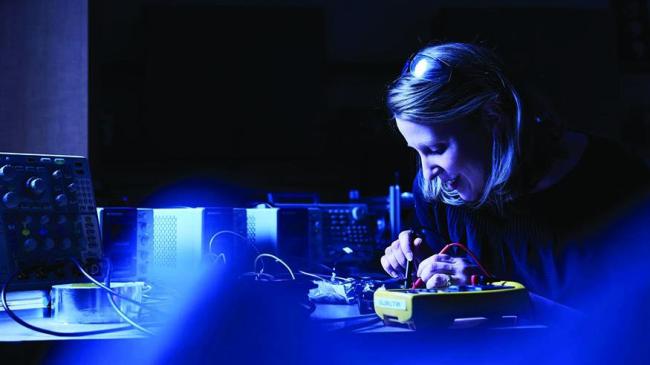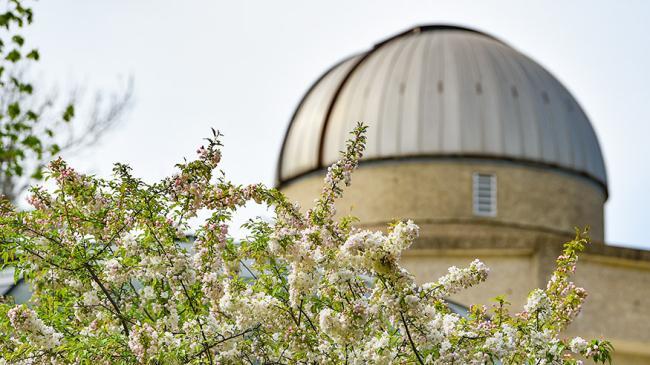Astronomy
In This SectionAugustana offers a new minor in astronomy based in the Department of Physics, Engineering and Astronomy. Here you are part of a 50-plus-year history of exploring space at a college known for strong science programs with a liberal arts foundation, and a culture of support for research and adventure.
Research and adventure are at the heart of study in astronomy. At Augustana, students minoring in astronomy learn using resources that link our campus to the American west, and to the far reaches of space.
Distinctions
- The MACRO (Macalester-Augustana-Coe Robotic Observatory) consortium gives Augustana students use of the advanced, remote-controlled Robert L. Mutel Telescope in the Arizona desert—a larger and more sensitive telescope than what most colleges of Augustana’s size can provide. Using high-quality images from the Mutel Telescope, Augustana astronomy students learn from astrophysical objects in full brilliance; upper-level astronomy students conduct projects in their advanced labs, as well as original research they can apply to graduate school and science careers.
- Augustana is one of only a few small liberal arts colleges with its own planetarium and observatory. The John Deere Planetarium and Carl Gamble Observatory first opened in 1969, the same year Apollo 11 sent astronauts to the moon. Three years later, Neil Armstrong himself visited Augustana during a 3-day seminar on space exploration.
- Today, the observatory features a Celestron C14 14-inch computer-driven reflector telescope. In 2019 the planetarium was renovated to add a digital laser projector capable of combining night sky images with computer animation and surround sound displayed across a 30-foot dome, creating an awe-inspiring astronomical theatre experience. Augustana’s general astronomy courses are taught in the planetarium, with classwork featuring multiple dome shows and sessions in the observatory.
- Astronomy students also are involved in community outreach during free public programs held in the planetarium and observatory. Thousands of visitors have come to campus to gaze into the night sky. Events include spring and fall open houses, an annual Season of Light holiday show, and opportunities such as viewing a lunar eclipse. Visitors may add a tour of Augustana’s Fryxell Geology Museum, next to the planetarium, combining their study of the skies with learning more about the elements of our own planet, Earth.

Graduate spotlight: A life of exploration for physicist Dr. Karen Andeen '03, associate professor of physics at Marquette University, has taken her from Augustana to Antarctica to beyond the Milky Way—and into the depths of cultural change for her field. → MORE

The John Deere Planetarium and Carl Gamble Observatory features a Celestron C14 computer-driven 14-inch reflector telescope. Stargazing, educational programs and planet viewing are offered to the community as well as campus. → MORE
